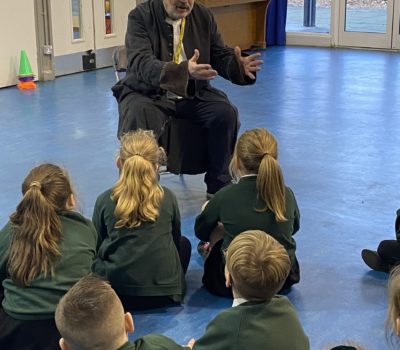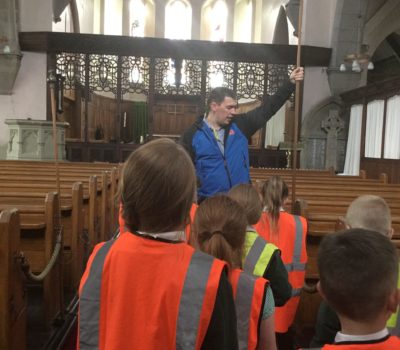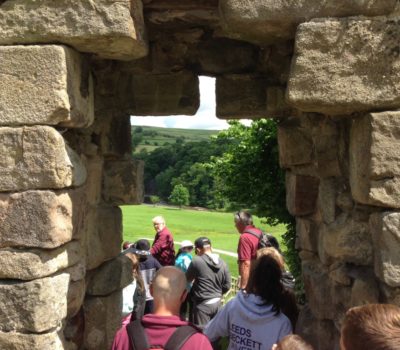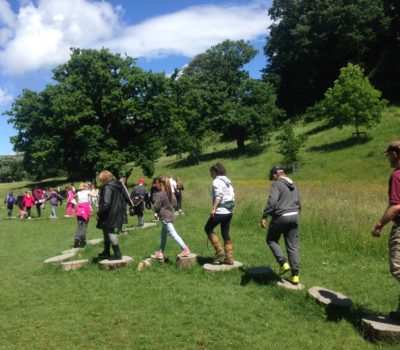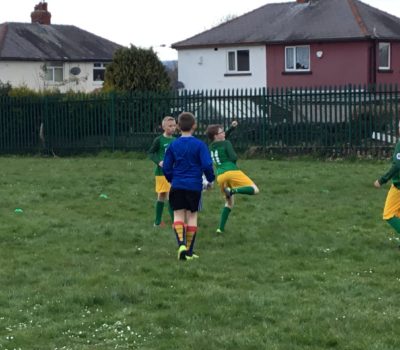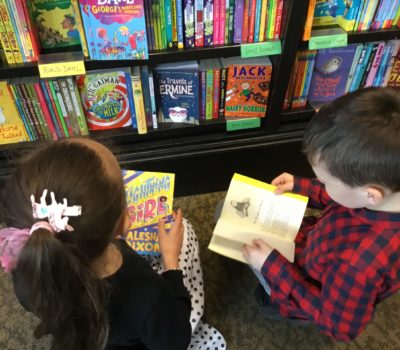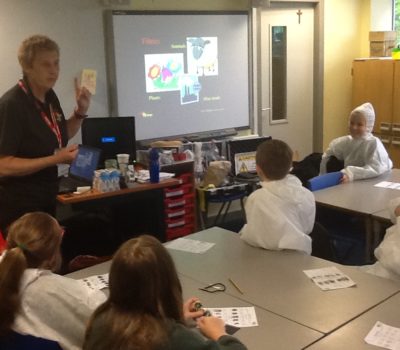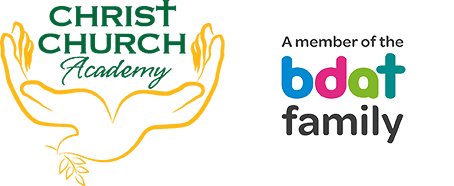Curriculum Rationale
The Equality Act (2010)
Everyone covered by the new Code also ‘has duties in relation to disabled children and young people under the Equality Act 2010:
- they must not discriminate and
- they must make reasonable adjustments for disabled children and young people… [this] includes children with long term health conditions such as asthma, diabetes, epilepsy, and cancer.’
Therefore, in accordance with the ‘Aims and Objectives’ set out below, Christ Church Academy will work to be a fully inclusive and caring school which welcomes all children into its community. We will work with each child and his/her family in order to ensure they have the best start in life.
Aims and Objectives
In accordance with the principles of the SEND Code of Practice (2014), our Curriculum approach and policy aims to ensure that the school:
- Involves children and parents in the decision-making process
- Identifies and rapidly responds to children’s SEND needs.
- Collaborates fully with health and social care services to provide support for children and families with SEND
- Has high quality provision available to meet the needs of children with SEND
- Works collaboratively with SEND children and their families to write Education Health and Care Plans (EHC Plan) that help prepare the child for adulthood
- Gives children with SEND access to a broad, balanced and relevant curriculum, which is differentiated to meet their individual needs.
- Has a graduated approach to SEND, whereby appropriate supportive actions are matched to an SEND child’s specific needs.
- Provides a ‘Local Offer’ of services available in the school which will make readily available information about the school’s facilities and support for children with SEND
- Ensures good governance and leadership of SEND provision
Ensures SEND children are not treated less favourably than other children.
Statement of Intent
Our curriculum reflects both the needs and interests of our children. It intends to give them a broader understanding of themselves, their community and the wider world. Our curriculum will teach children to be able to transfer the strategies and knowledge (both substantive and disciplinary) that they have learnt; they will take ownership of the learning process from one year to the next in order to build a successful life.
We incorporate explicit teaching of learning behaviours and Christian and British values into our curriculum to ensure that our pupils are prepared for life in modern Britain whatever their starting points.
By the time they leave our school, children will:
‘have knowledge and awareness of who they are, their place in time, place and culture. They will know how people across time, place and culture, through courageous advocacy, have shaped the world. They will understand how they too, can shape the world around them.’
To reach this end point we have planned our curriculum to answer a series of ‘Big Questions’ each unit the children study is a smaller question building towards the children’s knowledge and understanding of the ‘Big Question’. Please click on the link to the document below to see how our ‘Big questions’ are sequenced.
Our Curriculum Plan gives information about the breadth of the curriculum that our pupils enjoy. We use a sequenced approach using the links that exist between subjects, across the year and build year on year.
KS 1 Long Term Plan (2026 update)
KS 2 Curriculum long term plan-update Autumn 21
Parents Information Sheets – Maths and English end of year expectations.
End of Year Expectations Y1
End of Year Expectations Y2
End of Year Expectations Y3
End of Year Expectations Y4
End of Year Expectations Y5
End of Year Expectations Y6
We follow the Dioceses of Leeds and York Diocesan Syllabus for Religious Education.
For the teaching of phonics, we use Read, Write Inc.
For the teaching of French we use ‘Language Angels’. Please ask at school if you would like to find out more. Alternatively, more information can be seen on their website https://www.languageangels.com/schools/
The skills and knowledge covered by each year group in each subject are given in our ‘Progression Ladder’ documents. These show how we build on Children’s Knowledge and skills each year. In order that they leave our school in year 6 with the knowledge, understanding and skills (cultural capital) that they need to build successful futures.
For PHSCE we follow the PHSCE association programme of study and the question based model of medium term planning. PSHE Association Programme of Study for PSHE Education (Key stages 1–5), Jan 2020 (1)
Geography_progression ladder year 1 -6
Science-Progress-Ladder N – Y6
We follow the Charanga Musical Schools scheme of work for music. The following provides an overview of the scheme. Scheme Overview [en]
If you would like any further information about our curriculum, please contact the school on 01274 410349
